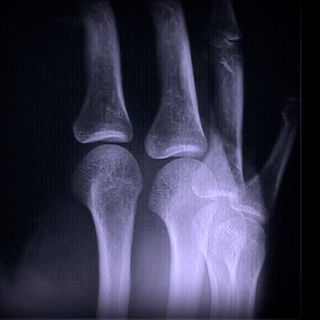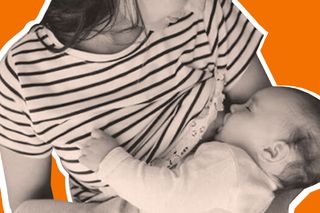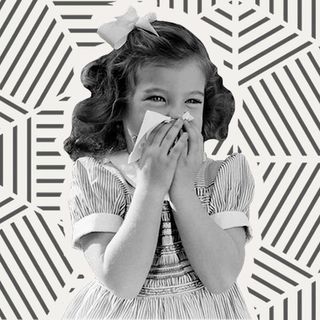
16 More Things Everyone Tells You About Breastfeeding That Just Aren’t True
No, it’s not normal for breastfeeding to be painful.

“Should you be breastfeeding your baby when you’re ill?” “A little pain during breastfeeding normal!” Everyone has advice, or a second-guess to make, when you’re breastfeeding. But who’s right? What’s true and accurate — and what’s just an old wive’s tale? In this second part of a series on breastfeeding myths, we get you the best, and the most appropriate information on breastfeeding, to clear up every confusion.
MYTH 1: A mother should not breastfeed the baby when she is ill.
False. In fact, if you nurse while you’re sick, the breast milk will pass your germ-fighting, protective antibodies to the baby, thus strengthening their immune system. Therefore, during common illnesses such as cough and cold, fever, diarrhea and vomiting, you can continue to breastfeed your baby. Even if you’re sick with more serious problems like typhoid, tuberculosis, jaundice or malaria and on medications, you can feed your baby, if you feel physically able to — however, be sure to tell your physician if you plan to continue breastfeeding, so they can take that into account when they make prescriptions.
In case of diseases without known cures, like cancer or AIDS, consult your doctor before breastfeeding.
MYTH 2: Exercise will turn your milk sour.
False. Working out causes the body to produce high levels of lactic acid, which will be present in breast milk, giving it an unpalatable taste — however, that doesn’t mean you can’t breastfeed. Studies have shown that babies don’t find it any different. Just try to shower before breastfeeding, if you’ve been working out, because salty skin could make babies uncomfortable. And avoid pulling up your sports bra to nurse, because the tight band may clog the ducts.
MYTH 3 : Exercise decreases the production of milk.
False. Exercising while you’re still breastfeeding does not have any effect on milk production. On the contrary, it helps release endorphins, which make the woman feel good about herself and can alleviate symptoms of postpartum depression.
MYTH 4: Breastfeeding will cause your breasts to sag or lose shape.
False. If you see long-term changes to your breasts, it’s likely from pregnancy, not breastfeeding. Breasts often double in size/weight during pregnancy, irrespective of whether you breastfeed or not. Any increase stresses the ligaments that support breasts — and more stress equals extra sagging. Nursing has the least impact on your breasts compared to what aging, weight, BMI and gravity can have on them.
MYTH 5: You must eat only bland food while breastfeeding.
False. By the time the foods you eat have been digested and used to make breast milk, any spicy or flavorful ingredients have been broken down and won’t affect your baby at all. Similarly, it is unlikely that eating cabbage or broccoli will make your baby gassy (another common myth). If you’re baby is refusing to nurse, it’s not because you’ve eaten spicy food, but rather is for some other reason.
It is possible for a baby to be allergic to something you’ve eaten, which breaks down and is included in your breast milk, but that shouldn’t be a fear that causes you to change your diet from the start. Rather, eat normally, and watch for any pattern of your baby seeming fussy after you eat certain foods; then experiment with your diet.
MYTH 6: When you’re breastfeeding you are should still “eat for two.”
False. Breastfeeding does burn calories, which might leave you feeling hungry. But you’re not ‘eating for two.’ A normal, balanced diet, with a normal calorie count, is enough to maintain breast milk production.
MYTH 7: Drinking cold beverages can cause the nursing child to catch a cold.
False. It is perfectly okay for lactating women to consume cold beverages. (In fact, feeling cold or consuming cold drinks has nothing to do with catching a cold.) You can even keep breastfeeding if you actually are sick with a cold — don’t worry, the viruses that cause colds don’t transmit through breast milk.
MYTH 8: It’s normal for breastfeeding to be painful.
False. You might initially feel a tingling sensation in your breasts if you’re new to breastfeeding. But if breastfeeding is painful, then it isn’t being done right. You might want to look at either the baby’s latch or a possible tongue tie issue. If you can’t identify or resolve the pain, reach out to a lactation consultant, who can guide you through figuring out the problem. If you’re reading this while you’re still pregnant, consider attending ante-natal classes that discuss various breastfeeding positions and techniques, which may help you avoid experiencing any pain.
MYTH 9: A breastfed baby won’t sleep through the night until they start eating solids.
False. Babies sleep through the night once they develop the ability self-soothe — usually a milestone that develops around six months, but also depends on a number of individualized factors, such as the baby’s size, personality and sleeping patterns. Breastfed babies do need to be fed more frequently than formula-fed babies in the early months, because breast milk is digested more quickly than formula, which may mean more nighttime feeds. But as long as your baby is getting enough to eat, they’ll sleep for as long they’re meant to sleep.
Article continues below
MYTH 10: If your breasts feel full, you have an adequate milk supply. / If you stop leaking, you’re losing your milk.
False. The feel of your breasts have nothing to do with milk supply. Neither does leaking. If your breast are leaking, it means you simply need to get the milk out of your breasts and into your baby. Once your baby acquires a feeding routine (at about 6 to 12 weeks of age), leaking usually stops. You’re not losing your milk. Your breasts have simply learned how much milk to make and when to make it.
The following are also not signs of milk supply, adequate or otherwise: baby nursing frequently or baby guzzling down a bottle of expressed breast milk after nursing.
The best way to ascertain if your milk supply is adequate for your baby’s needs is by monitoring nappy count over the course of 24 hours, along with tracking the baby’s weight gain according to what’s appropriate for breastfed babies. Breastfed babies older than 6 weeks should have at least six wet nappies in 24 hours; before this age, babies tend to have one wet diaper in 24 hours for each day of life, working up to around six wet nappies a day.
MYTH 11: You need to nurse every two hours round the clock — no more, no less — to make sure your baby gets enough to eat.
False. Watch the baby and not the clock. Babies’ eating patterns are as individual as those of their parents. That said, many newborns do naturally fall into an every-two-hours routine. If you’re worried that your baby isn’t getting enough to eat, count the number of dirty diapers they have (see above).
MYTH 12: If a pregnant mother breastfeeds, then the baby in the womb may be harmed.
False. Breastfeeding won’t harm the baby in the womb. Women can continue breastfeeding a child until the last trimester of their pregnancy with the next child. After giving birth, they can even nurse both the newborn and the older baby, if they choose. This is called tandem feeding, and is totally possible, though good nutrition for the mother becomes all the more important.
The only exception is pregnant women with a risk of premature labor (typically due to pre-existing medical conditions or lifestyle factors), who should not breastfeed during pregnancy.
Myth 13: Once you go back to work, you’ll have to wean.
False. If you commit to pumping, you can give your baby breast milk for as long as you wish. You can read more about how to do it here.
Myth 14: Breastfeeding is a reliable form of birth control.
False. Breastfeeding can be 98% effective in preventing pregnancy — but only if you’re breastfeeding exclusively (that is, frequently day and night), your baby is younger than 6 months, your period hasn’t resumed, and your baby does not use a pacifier (which can cause the baby to suckle less intensely, which in turn affects your hormone production). Even then, breastfeeding is not foolproof, though, so if you’re not ready to be pregnant again, don’t rely on breastfeeding for contraception.
Myth 15: Sexual arousal while breastfeeding is rare and not normal.
False. Sexual arousal while breastfeeding is natural and should not be considered a taboo. When you nurse your baby, your body releases oxytocin, the same hormone that is released during orgasm.
Myth 16: Women should not drink alcohol if they are breastfeeding.
False. As long as the alcohol intake is reasonable and timed correctly, so it can filter out of your system (i.e. your blood and breast milk), it’s no problem at all. One sure-fire way to avoid any possibility of transferring alcohol via breast milk is to express breast milk before drinking, to have on hand if your baby gets hungry.
Vanshika Gupta Adukia is a Mumbai-based physiotherapist who specializes in antenatal, postnatal and pelvic floor care, a childbirth educator, and the founder of Therhappy. She holds a Bachelor of Physical Therapy degree from DY Patil University, Mumbai, and is a CAPPA Certified Lactation Educator. An avid reader, she is passionate about women's health, little babies, all things colorful and happiness.
Related


Decongestants Aren’t Going To Make Your Kid’s Cold Go Away
